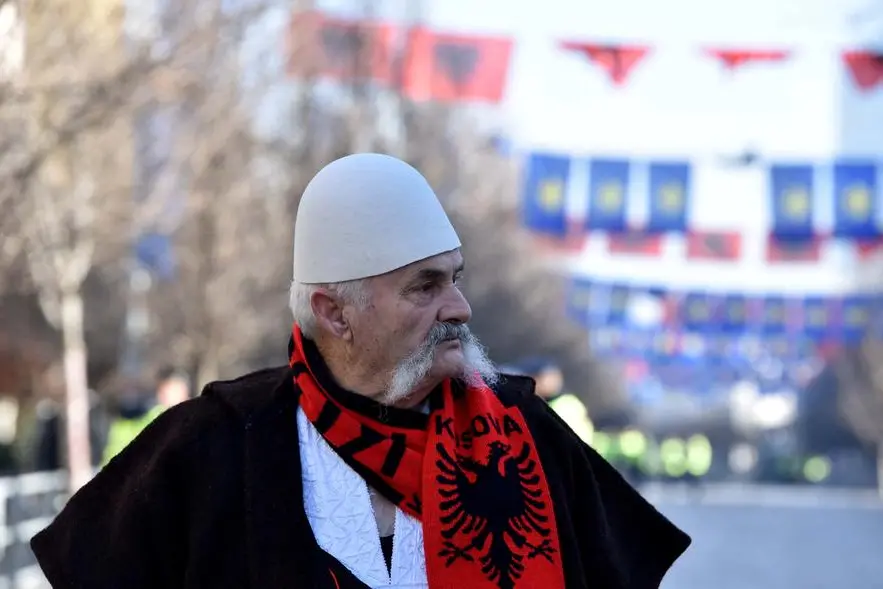PHOTO
National flags waved in Pristina's streets on Friday as Kosovo celebrated 15 years of independence with an eye to reaching a normalisation deal with Serbia, crucial to stability in a region still recovering from ethnic wars in the 1990s.
"Our independence was achieved through struggle and sacrifice, but our independence will only grow through work," o Kosovo Prime Minister Albin Kurti said as the capital prepared for a police and army parade later in the day.
Tensions with Serbia linger as Belgrade continues to support the refusal of 50,000 minority Serbs in north Kosovo to recognise the country's independence, declared almost a decade after an uprising against repressive Serbian rule.
Serbia, whose forces were driven out of ethnic Albanian-majority Kosovo by NATO bombing to stop a brutal security crackdown by Belgrade, still deems its former southern province an integral part of its territory.
U.S. and European Union envoys are pressing the countries to approve a peace plan presented in mid-2022 under which Belgrade would stop lobbying against Kosovo having a seat in international organisations including the United Nations.
Kosovo would commit to forming a semi-autonomous association of Serb-majority municipalities in the north, where local Serbs have resisted Kosovo state authority for years and clashed repeatedly with police.
Belgrade and Pristina have both accepted the EU plan in principle, saying it is a good base for further negotiations. Normalisation of relations is one of the key conditions for Serbia and Kosovo to progress towards EU membership.
"We welcome your endorsement of the EU proposal on normalisation, with the eventual goal of mutual recognition which would help secure a more peaceful and prosperous future for the people of both Kosovo and Serbia," U.S. President Joe Biden said in a letter to Kosovo counterpart Vjosa Osmani on Thursday evening.
Ali Reshani, 73, among thousands of Kosovars gathering in Pristina's streets for the Feb. 17 independence anniversary, told Reuters: "Thanks to God we have our own police, we also have our own army. I expect better days."
He added: "I hope God will give good things to the Americans for helping us."
There were no celebrations in the Serb-majority town of North Mitrovica in north Kosovo.
Local Serb taxi driver Lazar Kostic, 58, said he had ethnic Albanian friends but was in touch only by phone. "(Kosovo) doesn’t mean anything to me personally. It is not a state and for me it never will be," he told Reuters.
Alluding to the former federal, multinational Yugoslavia torn apart by ethnic wars in the 1990s, he said: "We grew up during times when it was not important who or what you were or what your name was. Those were the happy times. But, when politics got involved in our lives, it became another story." (Additional reporting by Branko Filipovic in North Mitrovica; editing by Mark Heinrich)





















